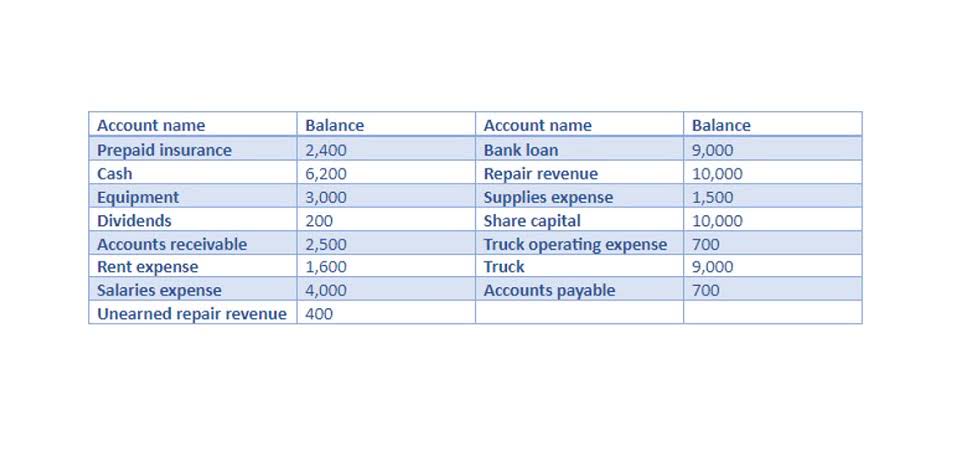
The Smartsheet platform makes it easy to plan, capture, manage, and report on work from anywhere, helping your team be more effective and get more done. Report on key metrics and get real-time visibility into work as it happens with roll-up reports, dashboards, and automated workflows built to keep your team connected and informed. This payroll register template includes a pay stub and a register of employee information to help you process payroll.
simple record-keeping best practices for small business owners
- Small businesses also manage their own accounts receivable to make sure they get paid on time for goods and services that have already been bought or rendered.
- These expenses that haven’t been paid yet are categorized as accounts payable.
- You have a chance to make changes to your tax returns during this time and are eligible for an audit by the IRS.
- Now that you’ve balanced your books, you need to take a closer look at what those books mean.
- Real-time updates mean you’ll always know what’s available, what’s low, and what’s moving quickly.
Understand the retention periods for different types of records and adhere to them. Now that you’ve balanced your books, you need to take a closer look at what those books mean. Summarizing the flow of money in each account creates a picture of your company’s financial health.
Set Up Payroll

Yes, you can do bookkeeping by yourself, but we strongly recommend using accounting software to help reduce the time it takes to do your own bookkeeping. Accounting software also helps reduce errors when compared to manual bookkeeping thanks to its automated features, improving the accuracy of your income statements and other financial records. Our balance sheet template (pictured below) is a great way to track and analyze your financial health. It shows your current assets and liabilities, as well as the total sum of your equity and liabilities (such as debt your company owes).
Simple Recordkeeping for Small Business: Must-have Tips

Discover the different options available to you, and why it’s so important to keep detailed financial records. Accurate, up-to-date bookkeeping is the backbone of any successful small business. No matter what type of business you operate, an understanding of bookkeeping best practices is essential for keeping your business running smoothly, now and in the future.
Bonus infographic: 6 best practices for small businesses on simple financial record keeping

However, it can be difficult to catch up if you fall behind on reconciling transactions or tracking unpaid invoices. Regardless of your small business’s complexity, bookkeeping will still take time out of your week, so be sure you have the resources before committing to Law Firm Accounts Receivable Management handling it yourself. Remember, while hiring professional help for record keeping incurs some cost, the benefits far outweigh the expense.

- It’s also possible to link your cloud accounting software to other financial programs that your business uses, like your online banking or mobile payment apps.
- SafetyCulture is a mobile-first platform that enables teams to create and manage records related to safety, quality, and efficiency.
- Instead of performing a full inventory count only once a year, adopt cycle counting—a method where small portions of inventory are checked regularly.
- It’s important to take the time to research and test different options before making a decision.
- Summarizing the flow of money in each account creates a picture of your company’s financial health.
A reorder point is the stock level at which you should automatically replenish an item. To calculate ROP, consider factors like lead time (how long it takes to receive an order) and average daily sales. Periodic systems are a good fit for businesses with stable inventory levels, such as small-scale wholesalers or service providers. They’re also useful for companies transitioning from manual systems but not yet ready for the investment in a perpetual system. Perpetual inventory systems are a modern and efficient approach to managing stock. These systems track inventory levels in real-time using software and hardware like barcode scanners, RFID tags, or integrated record keeping for small business point-of-sale (POS) systems.
Maintain consistency

With all your software linked through the cloud, payments that you make and receive can be automatically recorded to a digital ledger. The software program can then make the calculations for you, giving you an accurate picture of your total income and spending that’s updated every contribution margin time your money moves. Online bookkeeping uses software that takes care of most of the calculations and data entry for you. A program like QuickBooks cloud accounting software, for example, can help you track income and expenses much faster than you could with a traditional ledger.

